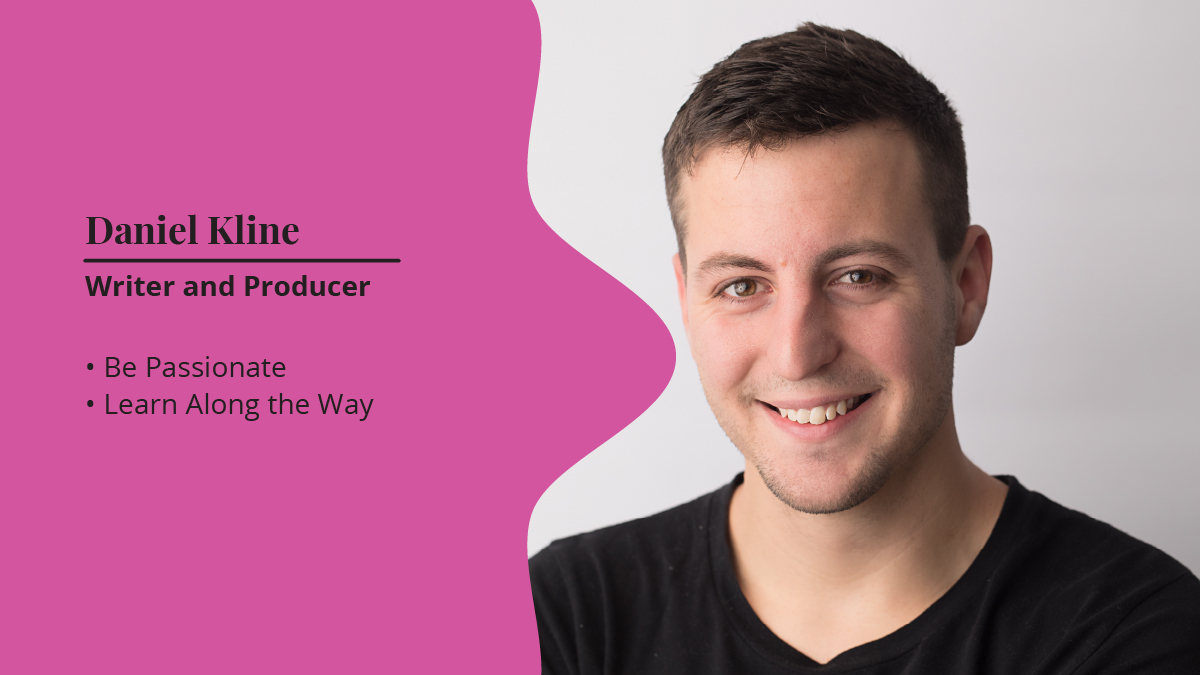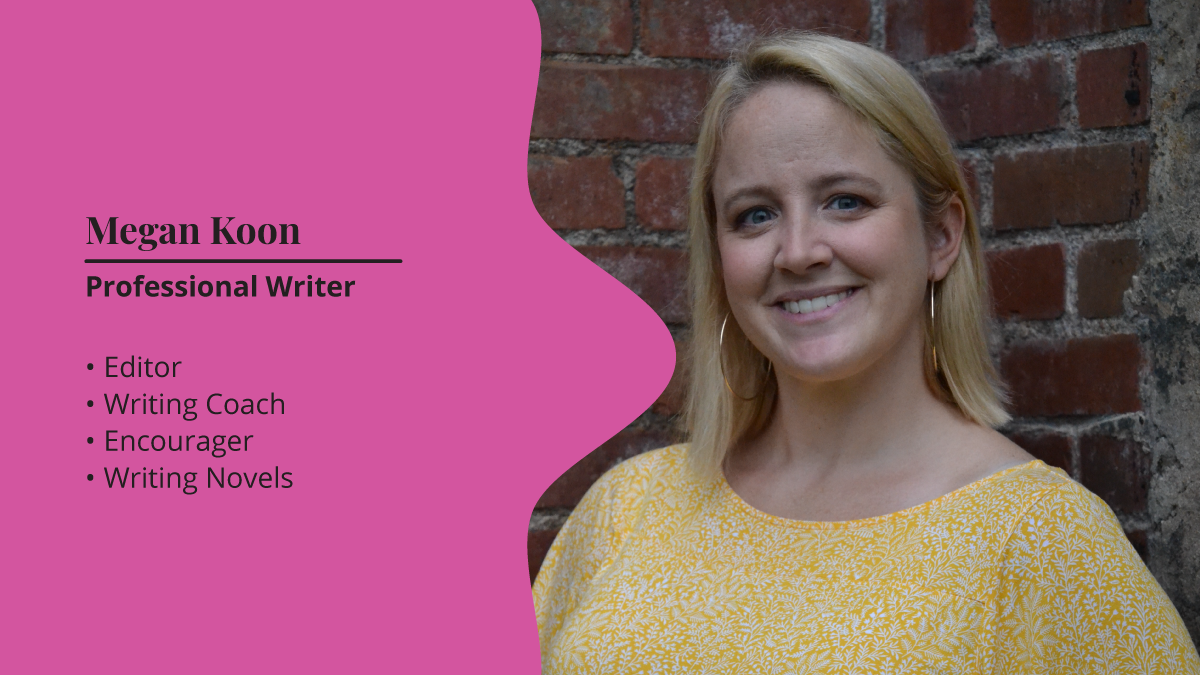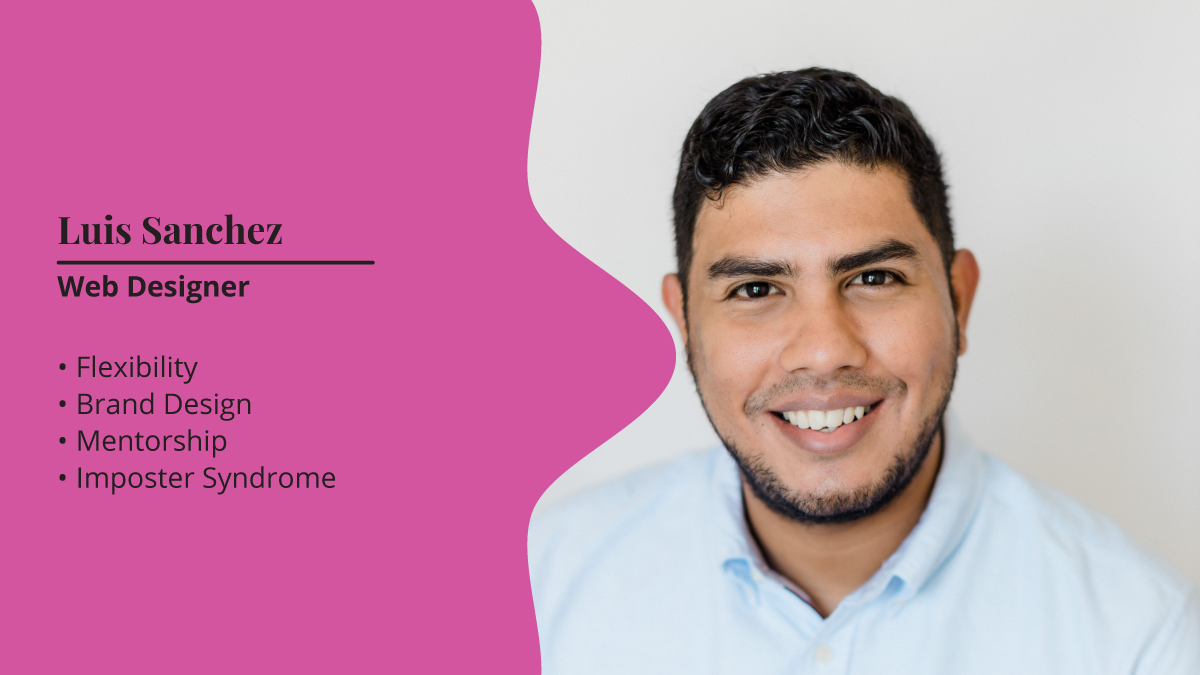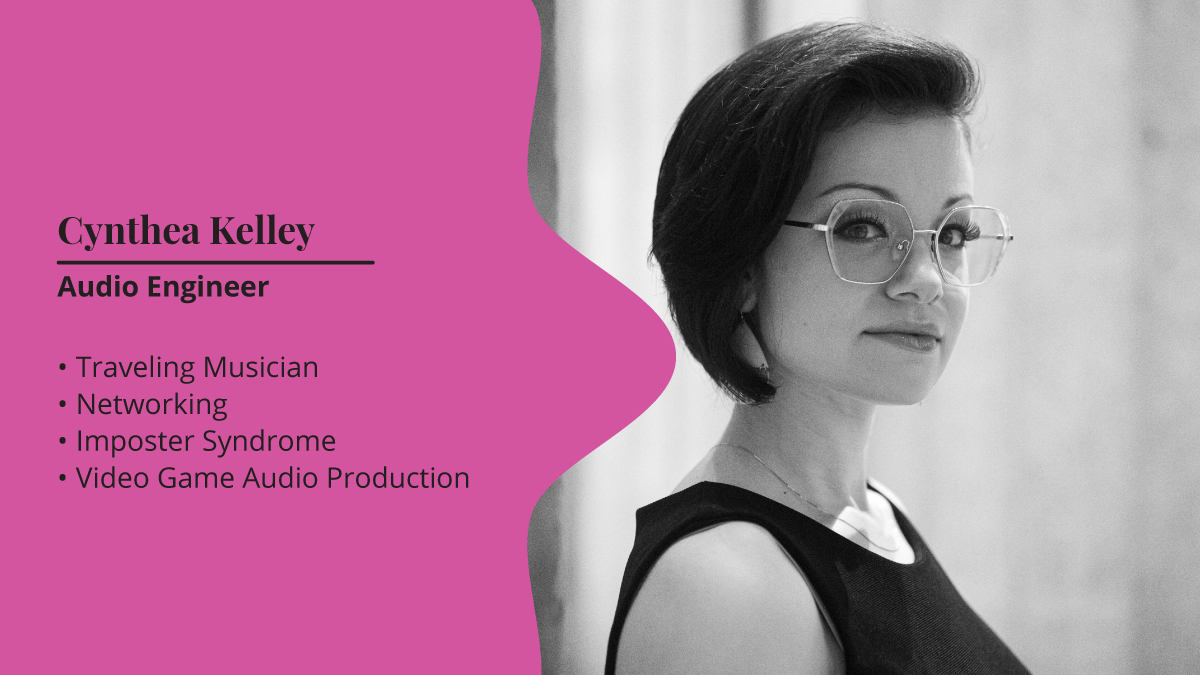“Just jump in and just do it and learn along the way. Don’t wait until you’re don’t. Don’t wait until you feel ready.”
Daniel Kline is a fitness coach and writer/producer for Starling media in Conway, South Carolina. Daniel has been professionally making films for two years now and offers great advice for those entering a career in the arts.
Interview
Transcript
00:01 | Lexi Raines
First, just give a little introduction of yourself. What do you? Who are you? What do you do for work, and where are you currently working from?
00:09 | Daniel Kline
Yeah. So my name is Daniel Kline. I am from Conway, South Carolina, and I, as far as work goes, I’m kind of doing two things as most artists are doing. I, my main job is, I’m a fitness coach, but my creative job is, I’m a writer and producer for Starling media.
00:31 | Lexi Raines
Yeah, that’s awesome. And, so how long have you been working for, you said Starlight Media?
00:040 | Daniel Kline
Starling media, like the bird. Yeah, yes. So that’s Starling media is actually it’s my thing. I, I’ve been making films like professionally, both creatively and I’ve done a couple of commercial things, but I’ve been doing film for about two years now, although Starling media was started back in November, so it’s still pretty fresh. But yeah, I’ve been doing film professionally for about two years, but total about four years. First two years was mostly learning.
01:14 | Lexi Raines
Yeah, that’s awesome. So you said you’re from Conway. So what is one thing that you like working as a creative in South Carolina? Because I know some people, they tend to think that if you want to be a creative professional, you’re going to have to move out of South Carolina. You’re going to have to move somewhere bigger. What does South Carolina give to you that somewhere else wouldn’t?
01:40 | Daniel Kline
I think South Carolina is actually a really great place to be a filmmaker, because one of the largest hubs in the world for filmmaking is Atlanta, which is practically our back door. I mean, it’s a little bit further for us because, you know, or at least makes them in Conway, but, I mean, it’s, yeah, we got Atlanta right in our back door, which means a lot of, a lot of film companies are, you know, they do kind of like sub out in a bunch of different areas that are nearby. So like, Charleston is close to us, Wilmington is close to us. And actually, most of the work that I do is up in Greenville, which is about an hour and a half from Atlanta, and so we get a lot of, like, Atlanta productions that film in Greenville as well. So I think we’re, like, we’re at a really great position to, you know, have, like, a really affordable living and, you know, also be very close to where the action’s at.
02:37 | Lexi Raines
Yeah, that’s amazing. So I’ve actually heard a lot of filmmakers and producers, there is a big hub for that in Greenville right now. So how would you describe the professional community up there?
02:56 | Daniel Kline
Oh, gosh. I absolutely love my filmmaking friends. I mean, I’ve met producers, I’ve met filmmakers that are kind of on both sides, so it’s not 100% but the community that I’ve, I’ve met, and I’ve worked with, and I’ve really, you know, dug roots with, there are some of the kindest, most giving people. Like, they freely give their time. We, we pretty much exchange time, like, I’ll work on your project if you work on mine. And everyone really gives 100%, sometimes 110%, and it’s just a really fantastic community, and I’m just, I love being part of it, and they welcome me as a local, even though I’m three hours away.
03:38 | Lexi Raines
Yeah, South Carolina really is just like one big community. I feel like, no matter where you’re from, we’re all very close with each other, which is awesome. So kind of moving a little bit, how do you define your professional or personal successes in your creative endeavors?
03:58 | Daniel Kline
So as far as filmmakers go, there’s a lot of talented filmmakers out there. And, I mean, there’s a lot of talented filmmakers that are way more talented than I could ever hope to be. So I learned pretty early on that my why, my why is, what’s going to make me different. And so like professional success would, would, on the surface, be, you know, like having a successful film, you know, film that wins awards and everything but personal success. I, I’m really passionate about people, and I think if I’ve got an award winning film, but my film was a miserable experience to work on, then I failed. And so that’s, that’s kind of how I am choosing to define my success; is just being a team player, being a, creating a positive work environment, and also just creating a product that shows love. You know, when I say shows love, like you can tell that people loved it when they worked on it. And I think that, and I think that really shows in the final product as well.
04:58 | Lexi Raines
I completely agree. I- I’ve seen movies in the past that you can just tell the actors, the people on set, they weren’t super passionate or happy about it, but I feel like it always makes the biggest difference.
05:12 | Daniel Kline
Yeah, absolutely.
05:13 | Lexi Raines
Yeah, so you said that you’ve been making movies for a while now, seriously, and just outside of that, what was your biggest fear when you first decided to pursue this career?
05:30 | Daniel Kline
I think the easy answer would be fear of failure. But I’m going to dig a little deeper, and I’m going to say my biggest fear is creating a product that I think is great, and people not liking it. Like, if I look at the final product, I’m like, “alright, this is awesome. This is my best work”, and it just absolutely flops. I think that’s the biggest fear.
05:53 | Lexi Raines
Yeah, I feel like that is a- that’s a big fear for a lot of people. But, so on a more positive note, like, what’s a defining moment you’ve had in your creative journey? Like, was there a particular project that made a significant impact on you, or was it something you produced that really showcased your creativity?
06:17 | Daniel Kline
Yeah, so my- I would have to say that the most defining moment was probably my first project, my first short film. It was, it was that big step where I went from wanting to become a filmmaker to actually being a filmmaker. I took I’d been, I had spent like, two years learning. At that point, two years learning and not doing anything. And everyone was just saying, “Just do it. Just do it. Just, you know, just push through. You’ve got stuff, if you’ve got a phone, you can make a film,” and so we just did it. I wrote something that was accessible, that had like a little creative spin on it, and something that we could film like, pretty easily in a weekend, and we just put a lot of effort into it, and it was, it was pretty good. Like, it’s, it wasn’t like the best thing, and you can tell it was like our first thing ever. But I got to show it to our, my filmmaking community up in Greenville, and these are people who, like, work full time in it, and like, they, like, some of them were actually wowed by it. They were like, “wow! Like, who, who did this? Who, you know, who edited them?” Like, it’s, my brother edited it. He’s never edited anything in his life and it was just like, it, it ended up being such a really cool thing, because we just, we just did it, and it’s been entered into film festivals. We just won Best Short and Best Director for it couple months ago. And so it’s like it was a really defining moment, because it was just that moment where I realized, you know, we can do this.
07:47 | Lexi Raines
Yeah, that is amazing. That’s so special. Congratulations on that.
07:52 | Daniel Kline
Thank you.
07:53 | Lexi Raines
So, what is, while you were on this path, was there any like advice you received, like good advice, bad advice?
08:05 | Daniel Kline
That- the advice, the best advice that I received was, was just do it. There’s a lot of, there’s a lot of creative people, not just filmmakers, but there’s a lot of creative people who are afraid to take that first step, but I mean, really, there’s no reason- there’s no time like the present, and there’s no reason why you can’t, and especially if you’ve got a phone in your pocket, you can do most of your creative work to some capacity. And, so the best advice and the thing I always just tell people who ask me what to do, just do it. Just jump in and just do it and learn along the way. Don’t wait until you’re ready. Don’t wait until you feel ready.
08:43 | Lexi Raines
Yeah because- I feel that. Like you’ll never feel ready.
08:48 | Daniel Kline
Yeah, I had about a dozen people tell me that in a day, and I was like, “Okay, I get it. I get it.”
08:55 | Lexi Raines
Yeah, so along with “just do it” you obviously, you said you were a fitness instructor, so you have another job. How would you- How do you balance your day? Like walk us through a typical work day for you. That is an awesome, an awesome balance. So when you’re shifting into more of like, your creative mindset later in the day, what does your process look like for when like, you’re writing these movies, producing them, what does what does that process look like?
09:11 | Daniel Kline
Oh my gosh. So my day usually starts at 4am, which is rough. I’m not a morning person, but you know, I have to be, but no, my day usually starts at 4am and I just basically work between four and seven sessions. So my day, usually, my professional day usually ends around 11 or 12- 11am, or 12pm, so I mean, I’ve got the the last half of my day to do anything creative, you know, anything creative that I want and so it does allow for a lot of time, and, but- and the gym that I work at, they know, they know what I do. They know what I love to do, what I want to do and so, like, anytime there’s a project, I can freely take off and, you know, go pursue that. And I- So I, it’s a really awesome job to have, yeah.
10:05 | Lexi Raines
That is an awesome, an awesome balance. So when you’re shifting into more of life, your creative mindset later in the day, what does your process look like for when like, you’re writing these movies, producing them, what does that process look like?
10:22 | Daniel Kline
Yeah, you asked about writing and producing. I could, I could talk for hours about either so I’m going to choose one. I’m going to shorten it. I mean, writing, writing is, is just a bunch of planning. That’s all it is. It’s just a bunch of planning. You plan on conversations and everything, and then you write it out. So I’m actually going to shift to producing what my day looks like as a producer. It’s a lot of- it’s a lot of boring office work. It’s phone calls. It’s making sure that people’s schedules align. It’s making sure that money is where it needs to be. It’s filling out spreadsheets, creating spreadsheets. I like to use this website called Milanotes. I know a lot of people use it to, like, take notes and everything it’s, it’s where I like to have, like, a different- it’s basically like a giant virtual cork board that you can, like, put different files and draw different lines between things. It looks like a crazy conspiracy theorist board, but- that’s, but yeah, it’s basically just filling in information and just making sure that everyone’s caught up on everything.
11:27 | Lexi Raines
Yeah, so, that seems like a lot to juggle. What are some habits that you have, that you’ve developed that you think would be beneficial for others wanting to join this field?
11:47 | Daniel Kline
I think the- the best habit for people who are wanting to join the field, if they’re starting from scratch, the- probably the best thing that I did for myself, and I, like, I would absolutely recommend, is I keep this, this Rolodex spreadsheet. I created- I created this spreadsheet that anytime I, I basically just got on set, anytime I could, like, I volunteered, I like, met people, shadowed people, and I spent, like, two years working on sets, different sets, without getting paid, just to, like, meet people. And so what I did was, every time I worked with somebody that I enjoyed with- enjoyed working with, and that I would want to work with again, someday, I would put their name, put their information in spreadsheet, put how I met them, and then, I also had a line that was like, this is the last date that I talked to them on, and I kept all of those dates within a month. And so, like, if it’s been about a month since I talked to somebody, I would text them say, like, “Hey, what are you working on? How are you doing?” and that spreadsheet quickly grew into, like, 100 lines. And that was 100 different connections that I you know, people that I kept in in contact with, and that, after about a year and a half of investment, that- that became work, like those people started calling me for- for work, and those became paid projects. And so, like, so, I mean, bottom line is, however you want to do it, like, find your community. Write down, write down a list of people that you want to work with and stick with those people.
13:26 | Lexi Raines
Yeah, that’s actually a really, a really clever idea. I haven’t- I wouldn’t have even thought to do that. That’s so smart. So do you have any questions that you wish we would have been asked- we would have asked you?
13:47 | Daniel Kline
Oh, no, not really. I think that covers everything.
13:50 | Lexi Raines
Okay, awesome. And my last question for you today is, do you have a creative that you’d like to nominate to be interviewed?
13:57 | Daniel Kline
Hmm, well, I’ve got a whole Rolodex full of them. Yeah, I’ve got, I’ve got one. I think she’d be really cool person talk to. But Yasmine Lee.
14:11 | Lexi Raines
Yasmin Lee?
14:12 | Daniel Kline
Yeah.
14:14 | Lexi Raines
Awesome.
14:15 | Daniel Kline
She’s a filmmaker up in Greenville. She’s an Emmy Award winning person, really, yeah, she’s and she’s really cool. Worked with her several times.
14:24 | Lexi Raines
Okay, awesome. Yeah, send us, send us her information, and then, yeah, I will hear this if you can. Thank you so much for your time. It was really great interviewing you. I’m going to look into your work. You seem so passionate about everything, I’ll be looking for your name out there.
14:46 | Daniel Kline
Thanks. Appreciate it.
14:48 | Lexi Raines
Thank you so much for your time. I hope you have a good. rest of your day, stay safe in the snow. Supposed snow.
14:59 | Daniel Kline
Alrighty, bye.




Leave a Reply